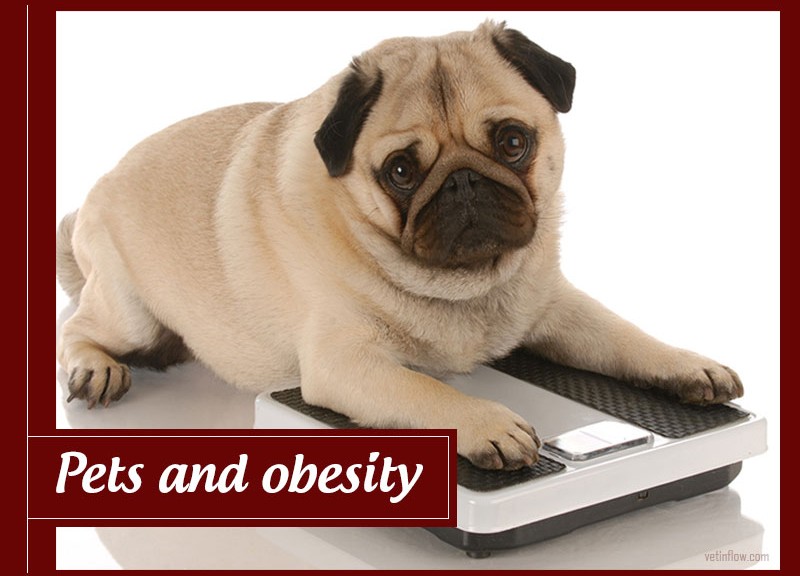Recent studies conducted in the UK have found that approximately 40% of our pets are overweight. Although dogs seem to be more affected, cats are right behind them statistically speaking and even small animals such as rabbits, hamsters and guinea pigs are starting to suffer from this condition as well. Obesity has become the most common medical disorder of companion animals and as the number of new cases rises, it’s quickly becoming a major welfare concern.
Obesity is currently considered a chronic disease and for many different reasons, it has a huge impact in a pet’s quality of life!
Overweight pets have decreased stamina due to the strain of carrying around all that extra weight and feel tired very quickly. As a result they will be less active, less playful and quite often less comfortable. They have a higher risk of many other diseases: endocrine and metabolic diseases, diabetes, digestive tract and reproductive disorders, respiratory and heart diseases, joint problems and even cancer. These animals are also more prone to heatstroke and it has been scientifically proven that obesity decreases their lifespan by nearly two years!
The good news is that this is an entirely preventable condition! To keep their pets fit and healthy, owners should feed them a balanced diet, increase their physical activity (walks, runs and play sessions), avoid overfeeding, feed them treats sensibly and avoid the unhealthy ones.
If your furry friend is already looking a little extra chubby, seek veterinary assistance. Your vet will create a healthy weight loss program that is tailored for your pet’s particular case! If your pet is healthier he will be for sure, happier!
Would you like to know more about cats and dogs? Check our Feline and Canine Courses:

